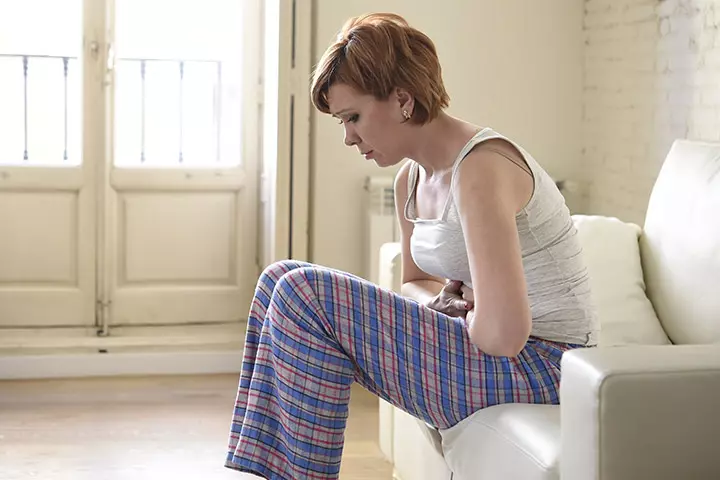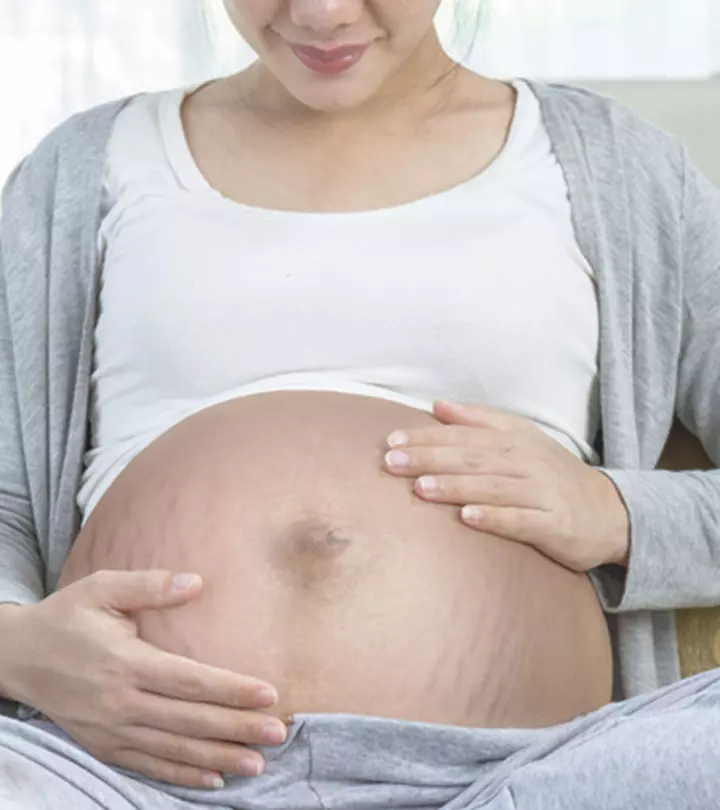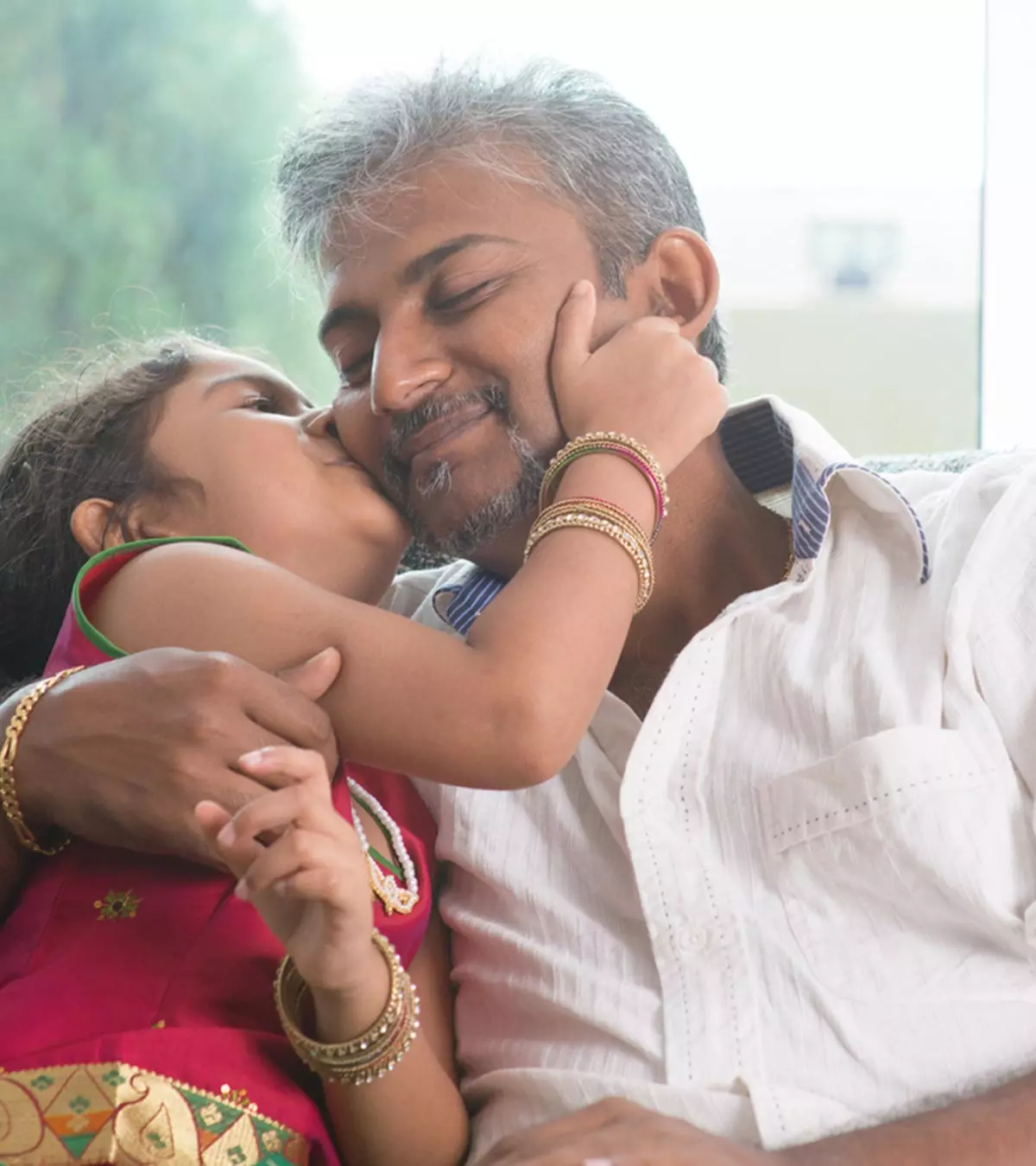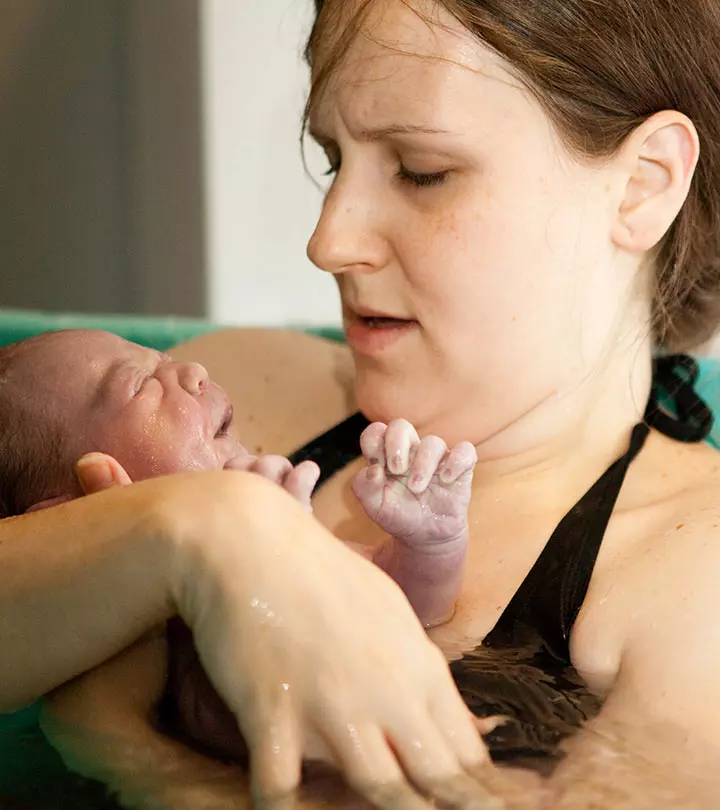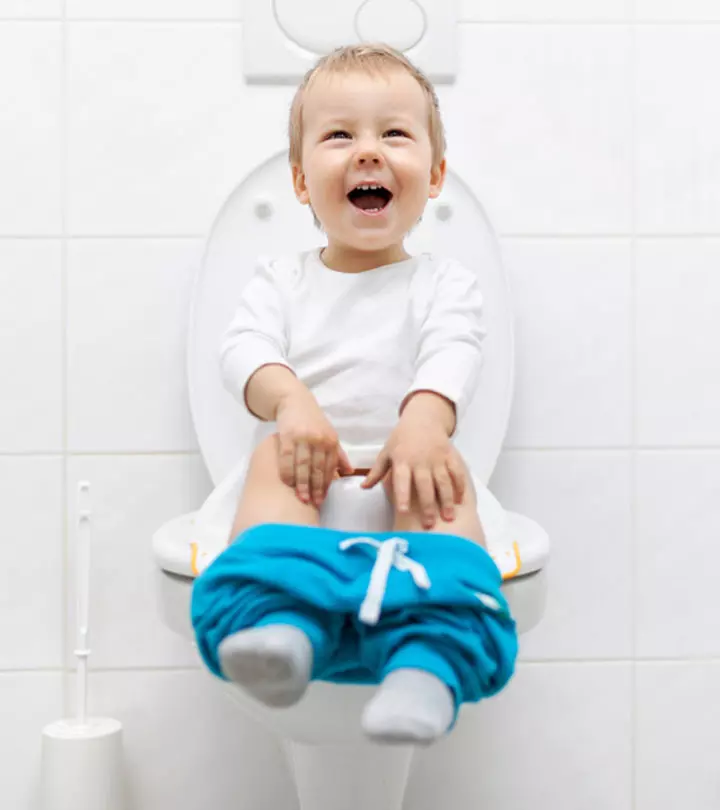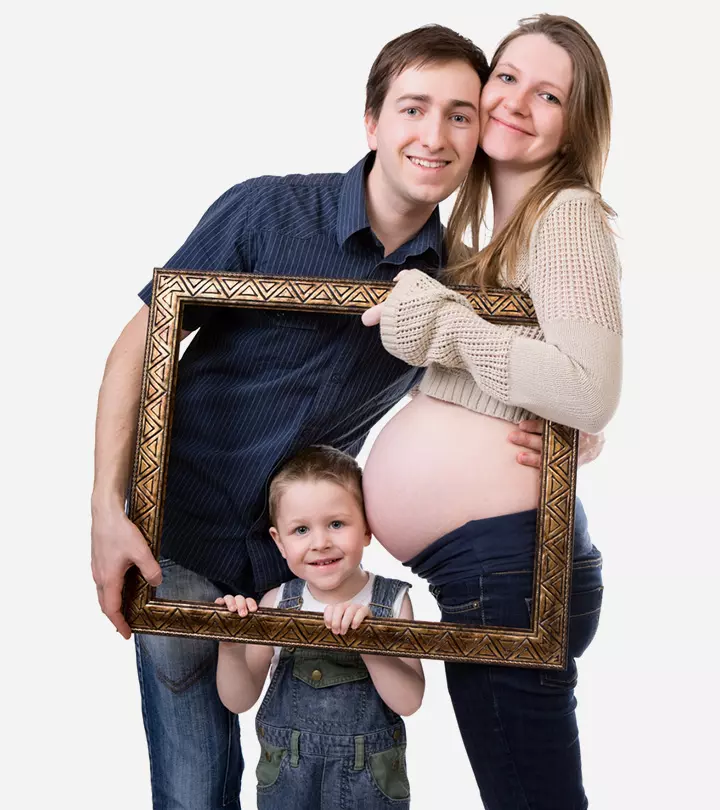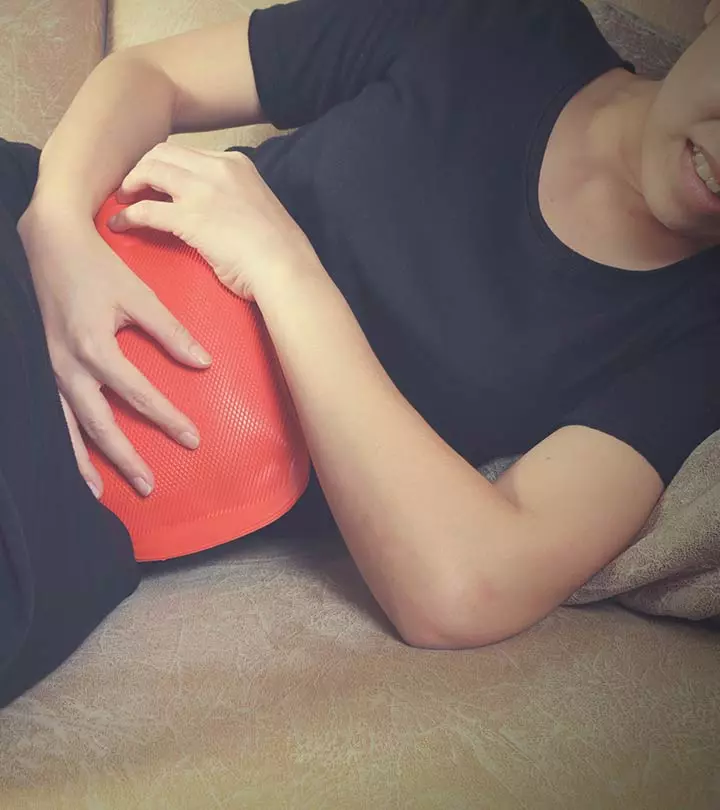

Image: Shutterstock
For every woman having a period-free life for even a few months is almost a dream come true. When you are pregnant, you get a little closer to realizing this dream, albeit for just nine months. But post delivery, you’re probably curious about what will happen to your menstrual cycle. The time of the return of your period depends on whether you breastfeed or not (1). And, yes, similar to your life after your baby, your periods will change a bit as well.

When To Expect Your First Period After Pregnancy
Image: Shutterstock
If you practice bottle feeding combined with breastfeeding or just bottle-feed, your first period post pregnancy could start at around 5-6 weeks after you give birth (2).
In the case when you solely feed through your breasts, there’s a possibility that you might not have your periods until you stop breastfeeding. This happens in order to prevent additional pregnancies while you have an infant. But, there might also be instances where periods return after a couple of months, regardless of whether you’re breastfeeding or not.
If your periods do return shortly after giving birth and you’ve had a normal delivery, it might be best to avoid tampons for the first menstruation, and your doctor might recommend it too. The reason is that your body is still heated up and tampons are likely to cause trauma.
What You Can Expect From Your First Postpartum Period
Image: Shutterstock
The nature of your period may change a little, a lot, or not at all. The duration, the intensity of the flow, and the cycle length are all susceptible to change after you give birth. Similarly, the cramps may change too. You may experience increased or decreased cramping due to the changes in uterus size post delivery.
It is normal for women to experience some amount of vaginal discharge or bleeding after giving birth. This stands true for both vaginal births and caesarean deliveries. It is because the body continues to shed blood along with the tissue lining the uterus while you were pregnant.
Lochia is the name of the vaginal discharge that happens during the postpartum period. It consists of blood, bacteria, and the tissue which sheds from the uterus lining. For the initial few weeks, lochia has a fairly high amount of blood, so it will be bright red, making it look like a heavy period. It may be in the form of clots.
This discharge may continue for a period of about 6 weeks, which is around the time your period is likely to return (in case you aren’t breastfeeding). If you experience bleeding in the form of pure blood instead of lochia, it is not pregnancy-related bleeding but your periods.
What Are The Possible Causes Of Concern
Image: Shutterstock
There are certain signs which indicate that your bleeding could pose a danger. In case you encounter any of the symptoms below, call your gynaecologist right away.
- Feeling feverish without an apparent reason.
- Persistent bleeding for more than a week.
- Bleeding accompanied by severe and sudden pains.
- Soaking through an entire pad or tampon with every passing hour or so.
- Foul odour accompanying a discharge.
- Menstruation is scarce or has been absent for 3 months after you’ve stopped breastfeeding.
Returning to your menstrual cycle is just your body’s way of recovering and returning to your pre-pregnant self. In case you find something that is out of ordinary about your first postpartum period, do contact your doctor. Though breastfeeding, in itself, is a foolproof method of contraception, ensure that you have a backup too. Taking oral contraceptives or using a condom may prove to be helpful. Make sure you listen to what your body is trying to tell you, in order to keep it out of danger.
Community Experiences
Join the conversation and become a part of our nurturing community! Share your stories, experiences, and insights to connect with fellow parents.


